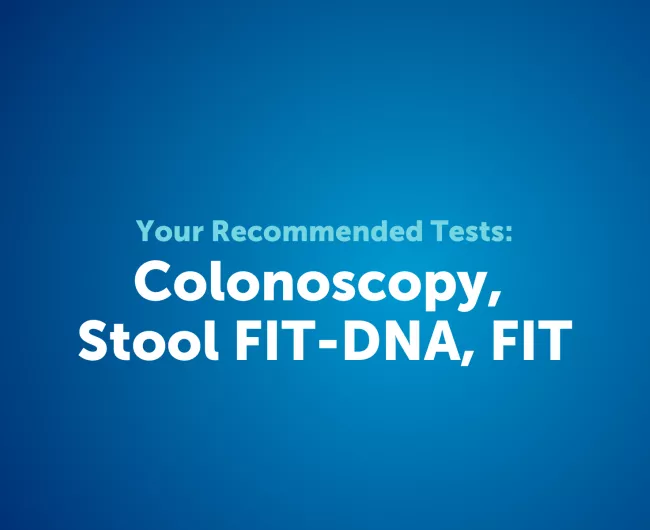Your Screening Recommendation

You are behind on screening.
Your health history puts you at average risk for colorectal cancer, which means there are several screening options that are right for you, including stool-based tests that can be conducted at home. The most common symptom of colon cancer and rectal cancer is no symptom, so it is important to get checked now.





